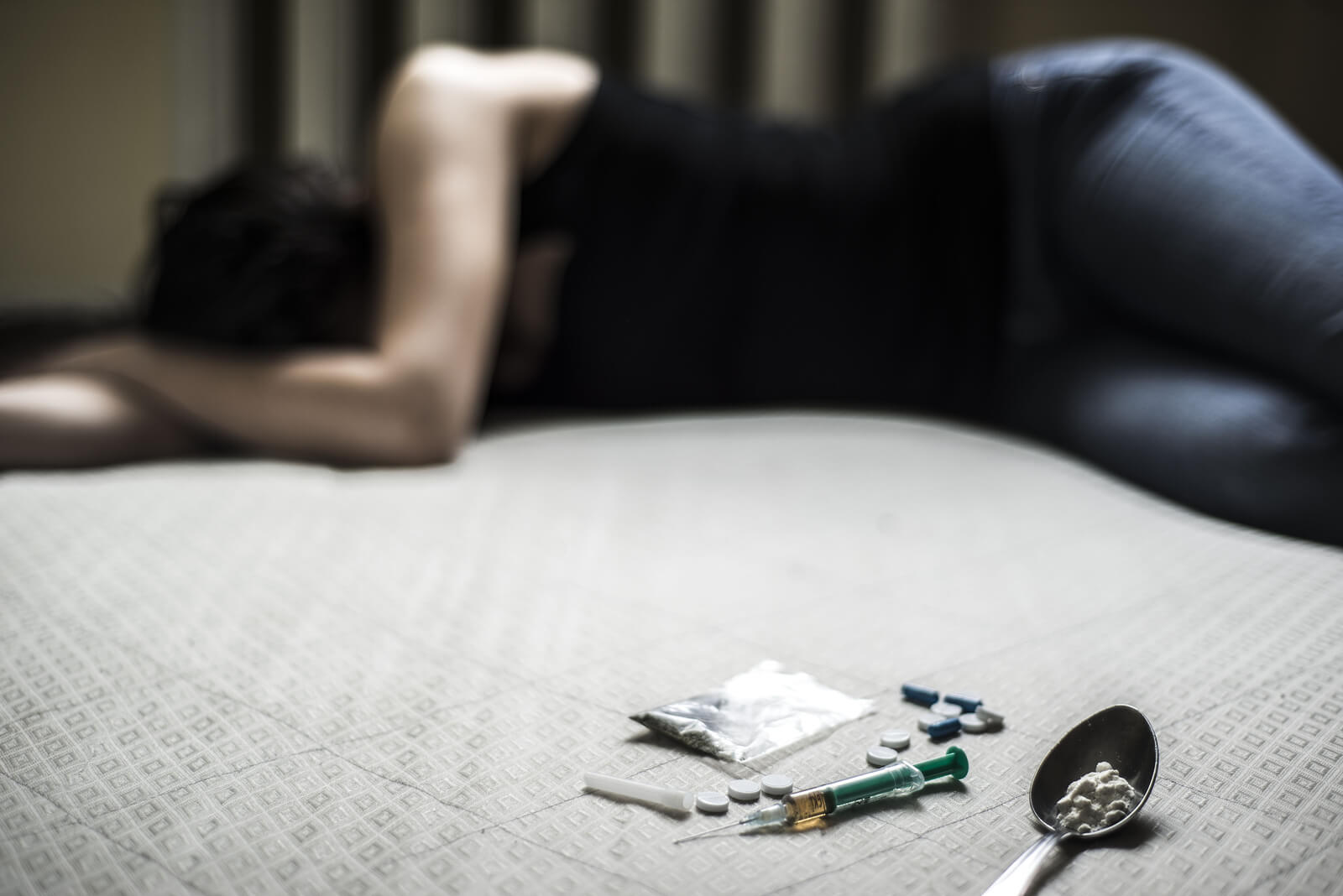
Heroin is a dangerous and deadly substance that kills an estimated 15,000 people a year in the U.S. As a powerful opiate drug, using heroin can change the brain’s neural pathways, leading to intense cravings and withdrawal symptoms upon cessation. Without outside intervention, support, and help, people addicted to heroin risk many different consequences as well as the potential for an accidental overdose. For loved ones, recognizing the signs of heroin addiction, and getting their loved one the help and support they need is critical to achieving sobriety.
What is heroin?
Heroin is a human-made substance, deriving from the opium poppy that has been around since the late 1800s. During the Civil War era in the U.S., scientists had managed to isolate the analgesic chemicals in the opium poppy, creating morphine. Unfortunately, morphine use and addiction began to rise. As a result, heroin was invented as a way to give people pain relief without the addictive effects of morphine. One major issue was that during this time in history, people did not understand the science of addiction.
By creating heroin, scientists managed to create an even worse addiction problem in the U.S. than morphine. In the early part of the 1900s, heroin was banned and is still illegal. This didn’t help much as heroin is still massively in circulation today.
Heroin is made on the black market and can be smoked, snorted, or injected. Heroin is often laced with other types of dangerous drugs or cut with different substances like baking soda or sugar. People usually start snorting or smoking heroin before moving on to injecting the drug.
How do people become addicted to heroin?
Rarely do people go from never touching a drug to waking up one day and injecting heroin. The path to heroin addiction usually starts with a legal, prescription medication for pain relief. One challenge is that legitimate prescriptions for pain relief do come with a risk factor of addiction. While most people can use prescription narcotics safely and correctly, some will misuse the drugs. Abusing prescription painkillers is the biggest risk factor for future heroin addiction.
This risk is more pronounced in people who have misused prescription narcotics within the past year. Becoming dependent on prescription drugs is another major risk factor for heroin addiction. The widespread use of prescription opioids in the early 2000s up until recently is one reason why heroin abuse has increased within that same timeframe. For example:
Why do people who misuse opioid prescriptions increase their risk of heroin addiction? Opioids, even legal medicines, impact brain chemistry in much the same way as illegal addictive drugs. Becoming dependent on legal opioids can happen very quickly and easily, even with perfect use. But misuse dramatically increases the chance of physical dependency on the drug.
When people are dependent on opioids, stopping them or cutting back will result in intense cravings and painful withdrawal symptoms. Without addressing the underlying reasons for addiction, people who are addicted will quickly exhaust their supplies of legal opioids. When this happens, they may start using black market drugs like heroin. In some parts of the U.S., obtaining illegal heroin is easier than getting fresh supplies of prescription opioids. Heroin is also less costly than prescription pills sold on the black market.
What are the symptoms of heroin addiction?
Heroin effects are similar to alcohol. Both heroin and alcohol dramatically slow down the central nervous system, lowering the respiratory rate and blood pressure. If someone uses heroin and then takes another central nervous system depressant, they can significantly increase the risk of overdose. The most common signs and symptoms of heroin addiction encompass changes in behavior and physical symptoms.
Behavioral Symptoms of Heroin Addiction
Physical Symptoms of Heroin Addiction
When someone is abusing heroin, they will also leave other clues behind. Heroin users will either snort, smoke, or inject the drug. They will have to use different types of drug paraphernalia to get high, which family and friends will sometimes come across. Some of the most common types of material used in heroin addiction are:
- Bent, burned spoons for heating the drug
- Needles and syringes
- Tourniquets, such as shoelaces
- Burned aluminum foil or gum wrappers
- Burned straws
- Plastic bags with powder residue left behind, usually white or light brown
- Pipes
When people abuse heroin, they also put themselves at high risk of contracting a bloodborne infection like hepatitis or HIV. Getting treatment for addiction will reduce these risks.
What does treatment for heroin addiction entail?
Heroin is a problematic addiction to beat, but not impossible. In most instances, people addicted to heroin will need to enter a medical detox facility first before entering an outpatient facility like Mission Harbor Behavioral Health. This allows their body to cleanse itself of the drug. People in detox have access to medical staff who can give them safe prescriptions and other medications to lessen the withdrawal side effects.
Therapy, both one-on-one and group therapy, is crucial for maintaining sobriety. For many, heroin addiction has its roots in other disorders, such as depression, anxiety, or trauma. Therapy can help patients get to the heart of their addictive behavior, and develop coping mechanisms for stress when cravings and relapse risks are most pronounced.
Support from family and friends is also vital to recovery. If you are concerned about a loved one’s drug abuse, help is available. Please contact Mission Harbor Behavioral Health today. Our counselors are standing by to answer your questions about our treatment options for heroin addiction.
Common Medications Used in Treatment
Some of the signs of heroin addiction can be managed with medications. At certain treatment facilities, you may work with a team or a physician that may prescribe one or more of the following medications:
Methadone
Methadone works in two ways, including reducing cravings for heroin and helping to alleviate the withdrawal effects so that someone is more likely to maintain their sobriety. For more than 40 years, this medicine has been used as part of heroin addiction treatment regimens. Since you do not experience euphoria, the risk of becoming dependent on this drug is low, especially compared to heroin and other opioids.
Buprenorphine
This medicine and heroin both bind to the same opioid receptors in the body. However, the strength of the activation is far less intense. Like Methadone, this medication also helps to reduce cravings and make the symptoms of withdrawal easier to cope with. People can take this medicine in different ways, including as a subdermal implant, a sublingual film, an oral tablet, and as an injection.
Naltrexone
When you are taking this medication, you do not experience the pleasurable effects of heroin or other opioids. One dose provides results for weeks, making it easier to take than other drugs that require frequent dosing. There is now an injectable form of this drug that a doctor can administer on a regular schedule, making it ideal for long-term addiction treatment.
Mission Harbor Behavioral Health is an outpatient treatment facility and does not offer residential, detox, or medication-assisted programs. This is content is intended to be informational only and is not medical advice. Please consult your doctor.
Therapies for Heroin Addiction
When you are at a Southern California rehab facility, there are different therapies you may use to work toward recovery. The two primary therapy types include group therapy and cognitive behavioral therapy.
Group Therapy
Group therapy is commonly used because it allows people to get peer-to-peer support while they are working through therapy. The peers in a therapy group work to both support and challenge each other. It also makes it possible to see things from the perspectives of other people which can help people to think differently and find new ways of doing things that could help them to remain in recovery.
Cognitive Behavioral Therapy
Negative and destructive thinking is common when someone is struggling with addiction. Such thought patterns can be harmful and increase the risk of relapse. This type of therapy works to help people to recognize negative thought patterns and develop strategies to regulate them.

After a therapy session, it is not uncommon to be given homework so that people can continue to work on what they learn during sessions. Ultimately, this type of therapy will help you to be more aware of yourself and your way of thinking so that you can develop methods to better cope with the negative so that it does not make you want to use heroin.
If you or a loved one have the signs of heroin addiction, it is important to seek help as soon as possible. Our Southern California rehab is here to answer your questions and help you or your loved one to get on the road to recovery.
The facilities at Mission Harbor are staffed with trained experts to best assist patients with their mental health issues. We are capable of dealing with any and all cases with a licensed staff, equipment, and approved techniques. Our mission is to help those who want to help themselves, and we support your decision in seeking help.
Get Help Now
Alcohol addiction is extremely difficult to overcome on your own.. Seek specialized help and let professionals guide you in your recovery.

